-
 +23 +4
+23 +4The Complete History of the Earth
Paleo Analysis
-
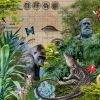 +17 +5
+17 +5Do we need a new theory of evolution?
Strange as it sounds, scientists still do not know the answers to some of the most basic questions about how life on Earth evolved. Take eyes, for instance. Where do they come from, exactly? The usual explanation of how we got these stupendously complex organs rests upon the theory of natural selection.
-
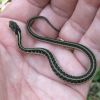 +12 +1
+12 +1Tetrodotoxin-resistant snakes
Garter snakes can consume amazingly toxic prey. This article is a fascinating insight into this harmless,charming little snakes diet.
-
 +9 +1
+9 +1Evolution trumps creationism for Canadians, poll finds
In the United States, however, the situation is completely different. The fate of incumbents, candidates and even nominees to public positions can be derailed if they provide the wrong answers on questions of faith.
-
 +15 +3
+15 +3A New Study Has Identified a Dominant Force Driving Evolution on Earth Today
Mounting evidence suggests humans are now a major driving force of evolution on Earth. From selective breeding to environmental modifications, we're altering so much of our world that we're not only now driving the climate, but the direction of life
-
 +3 +1
+3 +1Creatures living in our cities are evolving in some surprising ways
To the naturalist in me, the world is full of sorrows: extinctions, the deaths of ancient forests, fires and floods. But the evolutionary biologist in me is more sanguine. The process of evolution continues unabated. If anything, humans have caused it to speed up.
-
 +21 +3
+21 +3Animals keep evolving into crabs, and scientists don't know why
Crabs have evolved at least five separate times, and the process for adopting a crab shape is so popular it even has a name—carcinization.
-
 +8 +1
+8 +1The downwards head tilt seems to be a universal signal of dominance
One of the best-known but also most contentious ideas in psychology has to be that there are “universal” expressions of at least some human emotions. According to this idea, which was pioneered by Paul Ekman, particular patterns of facial muscular movements are reliable indicators of anger, disgust, fear, surprise, happiness, sadness and contempt, no matter where you are in the world. In other words, these expressions are a fundamental part of being human.
-
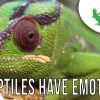 +15 +2
+15 +2Do reptiles have emotions?
-
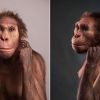 +12 +2
+12 +2New Fossil Shows Ancient Human Relative "Walked Like Humans And Climbed Like Apes"
An international team of scientists from New York University, the University of the Witwatersrand and 15 other institutions announced today in the open-access journal eLife the discovery of ...
-
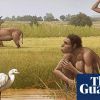 +21 +4
+21 +4Human species who lived 500,000 years ago named as Homo bodoensis
Species was direct ancestor of early humans in Africa and discovery has led to reassessment of epoch
-
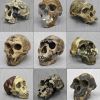 +16 +2
+16 +2When and Why Did Human Brains Decrease in Size? A New Change-Point Analysis and Insights From Brain Evolution in Ants
Human brain size nearly quadrupled in the six million years since Homo last shared a common ancestor with chimpanzees, but human brains are thought to have decreased in volume since the end of the last Ice Age. The timing and reason for this decrease is enigmatic. Here we use change-point analysis to estimate the timing of changes in the rate of hominin brain evolution. We find that hominin brains experienced positive rate changes at 2.1 and 1.5 million years ago, coincident with the early evolution of Homo and technological innovations evident in the archeological record. But we also find that human brain size reduction was surprisingly...
-
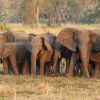 +4 +1
+4 +1Elephants have evolved to be tuskless because of ivory poaching, a study finds
A hefty set of tusks is usually an advantage for elephants, allowing them to dig for water, strip bark for food and joust with other elephants. But during episodes of intense ivory poaching, those big incisors become a liability.
-
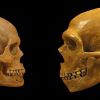 +11 +4
+11 +4Would we still see ourselves as 'human' if other hominin species hadn't gone extinct?
In our mythologies, there’s often a singular moment when we became “human”. Eve plucked the fruit of the tree of knowledge and gained awareness of good and evil. Prometheus created men from clay and gave them fire. But in the modern origin story, evolution, there’s no defining moment of creation. Instead, humans emerged gradually, generation by generation, from earlier species.
-
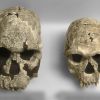 +15 +3
+15 +3Five Human Species You May Not Know About
We’re so used to the idea of being the only people around that it seems outlandish to think that not so long ago in our evolutionary history, multiple types of humans occupied various landscapes. The environments of the Paleolithic, or Stone Age, were dynamic. Populations moved, interacted, and sometimes even interbred.
-
 +10 +1
+10 +1‘Mind blowing’: Grizzly bear DNA maps onto Indigenous language families
The bears and Indigenous humans of coastal British Columbia have more in common than meets the eye. The two have lived side by side for millennia in this densely forested region on the west coast of Canada. But it’s the DNA that really stands out: A new analysis has found that the grizzlies here form three distinct genetic groups, and these groups align closely with the region’s three Indigenous language families.
-
 +17 +7
+17 +7The chance events that led to human existence
How have we ended up as the most advanced species on a small blue-green planet, orbiting a seemingly insignificant star, in one of the hundred billion galaxies in the Universe? Science has found some extraordinary answers to this question. Looking back through time, it appears that our existence depends on an apparently unlikely sequence of cosmic moments.
-
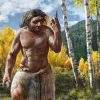 +4 +1
+4 +1‘Dragon Man’ skull may help oust Neandertals as our closest ancient relative
A fossil skull nicknamed “Dragon Man” has surfaced in China under mysterious circumstances, with big news for Neandertals. Dragon Man belonged to a previously unrecognized Stone Age species that replaces Neandertals as the closest known relatives of people today, researchers say.
-
 +12 +1
+12 +11 Billion-Year-Old Fossil Could Be The Oldest Multicellular Animal on Record
A teeny tiny fossil found in the Scottish Highlands could be a missing link in the evolutionary history of animals.
-
 +15 +2
+15 +2The survival paradox
We are working toward a true account of the universe, and the world we see around us is an accurate picture of reality. Or so most of us believe. At the same time we think we, along with our experience, are a product of evolution. Yet evolution is driven by survival not by truth.
Submit a link
Start a discussion




















